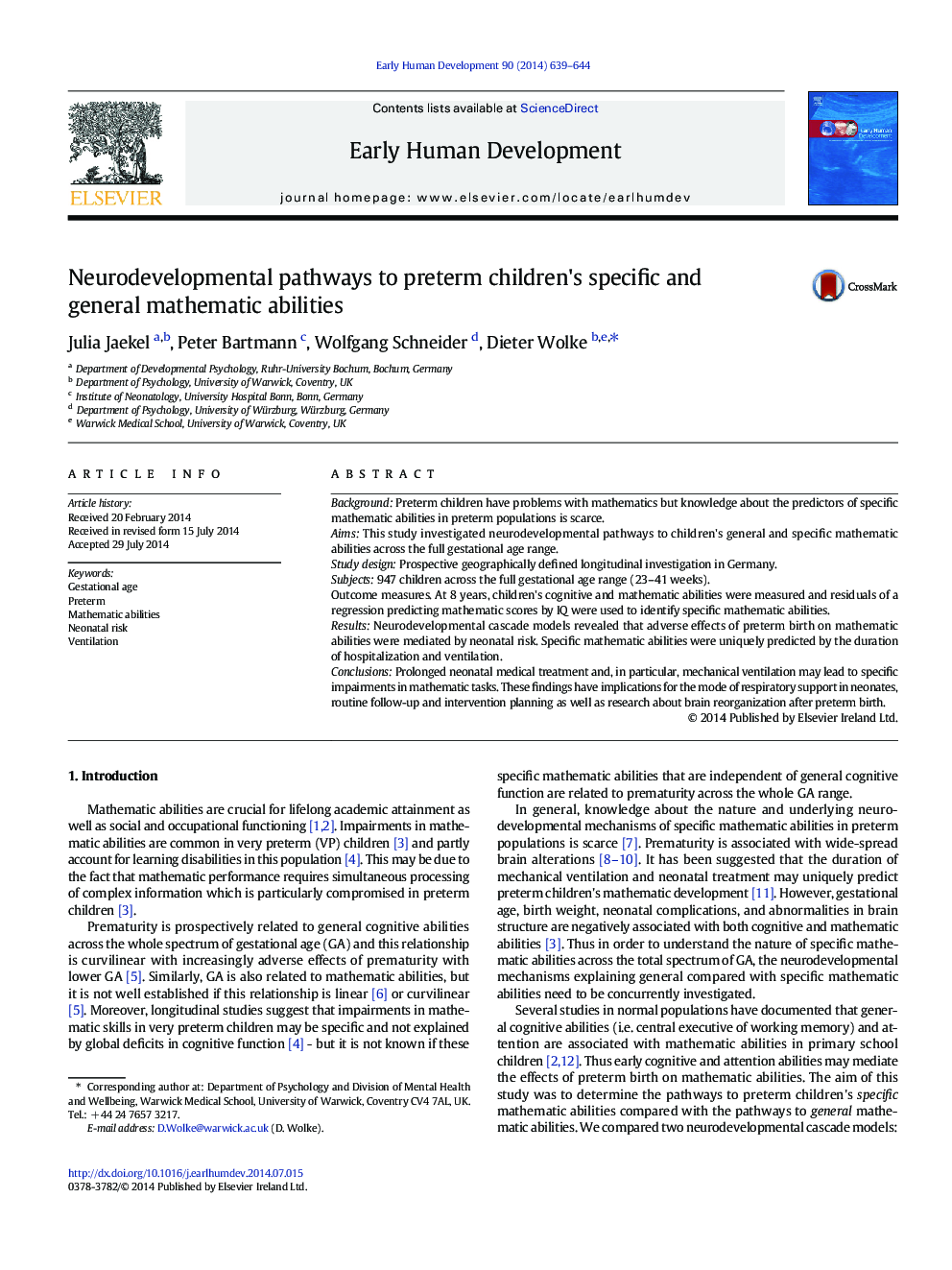| Article ID | Journal | Published Year | Pages | File Type |
|---|---|---|---|---|
| 3916643 | Early Human Development | 2014 | 6 Pages |
BackgroundPreterm children have problems with mathematics but knowledge about the predictors of specific mathematic abilities in preterm populations is scarce.AimsThis study investigated neurodevelopmental pathways to children's general and specific mathematic abilities across the full gestational age range.Study designProspective geographically defined longitudinal investigation in Germany.Subjects947 children across the full gestational age range (23–41 weeks).Outcome measures. At 8 years, children's cognitive and mathematic abilities were measured and residuals of a regression predicting mathematic scores by IQ were used to identify specific mathematic abilities.ResultsNeurodevelopmental cascade models revealed that adverse effects of preterm birth on mathematic abilities were mediated by neonatal risk. Specific mathematic abilities were uniquely predicted by the duration of hospitalization and ventilation.ConclusionsProlonged neonatal medical treatment and, in particular, mechanical ventilation may lead to specific impairments in mathematic tasks. These findings have implications for the mode of respiratory support in neonates, routine follow-up and intervention planning as well as research about brain reorganization after preterm birth.
